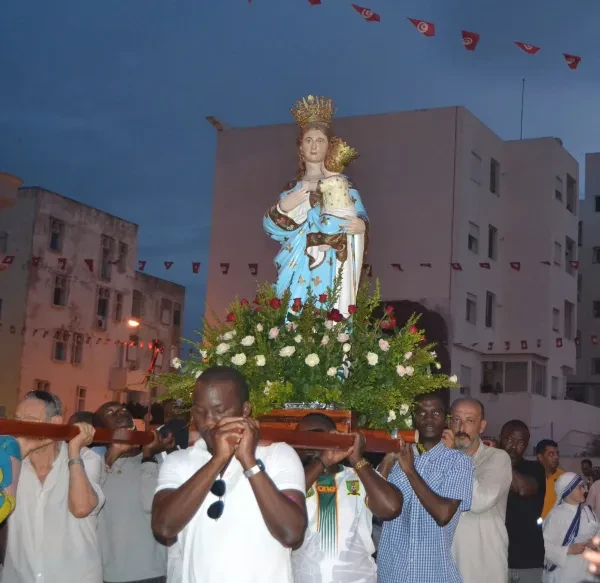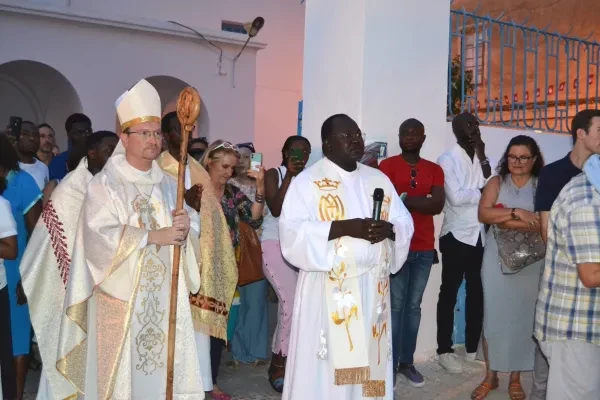Every year, in the heart of North Africa, Tunisia offers a unique spectacle: an annual procession in honor of the Virgin Mary, known as “Khorja el Madonna” – the “procession of Our Lady” – which bears witness to religious tolerance and coexistence, in a region where Christians often go unnoticed due to their small number and limited presence in the public sphere.
Despite the rise of Muslim extremist movements in the early 2010s, this centuries-old tradition is repeated every August on the streets of Tunisia. In an unusual demonstration in North Africa, hundreds of Christians walk smoothly through La Goulette, northern Tunisia, carrying an image of the Virgin Mary adorned with flowers to celebrate the feast of the Assumption on August 15.
Receive the main news from ACI Prensa by WhatsApp and Telegram
It is increasingly difficult to see Catholic news on social media. Subscribe to our free channels today:
Muslim participation increases the significance of the procession. The “Khorja el Madonna” symbolizes harmony in a country where Christians constitute a small minority between 25,000 and 30,000 faithful, mostly Catholics.

Christians and Muslims united
The tradition began at the end of the 19th century, when Sicilian immigrants from Trapani (Italy) brought an image of the Virgin Mary to Tunisia. Currently, Tunisians proudly call the “Virgin of Tunisia” the “Virgin of Trapani”.
For the procession, the faithful gather at the church of Saints Augustine and Fidelis in La Goulette to carry the Marian image on their shoulders.
Participants pray and celebrate masses during the event. The procession takes place every year in peace and tranquility, without impediments from the State or other religious groups. On the contrary, local non-Christians eagerly anticipate and support the celebration. Many non-Catholic Christian diasporas, especially African immigrants, also join the procession.

Origins of Christians in Tunisia
Despite being a minority, Tunisian Christians are committed to their country. The Catholic Church is closely monitoring their situation and working to protect them, fostering strong relationships with local authorities.
In 2007, the Tunisian government reported to the United Nations Committee on the Elimination of Racial Discrimination that the majority of Tunisian Christians have roots in sub-Saharan Africa and are predominantly Catholic, with smaller numbers of Protestants and Orthodox.
Historically, Christianity has been the main religious minority in Tunisia. Today, this minority is made up of three groups: Tunisian Christians of European descent and European Christians residing in Tunisia; Christian immigrants from sub-Saharan Africa; and Tunisians who have converted to Christianity after leaving Islam.
As in other North African countries, Tunisia is experiencing a growing movement of conversions from Islam to Christianity, as confirmed by local civil society organizations.
Although Tunisia does not penalize religious conversions, social taboos put strong pressure on Tunisian converts, who are forced to practice their faith in private for fear of stigmatization, family rejection and also violence.
Translated and adapted by ACI Press from an English version of CNA. Originally published in HERE I COME.

